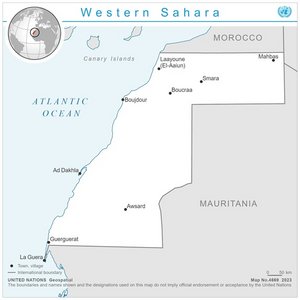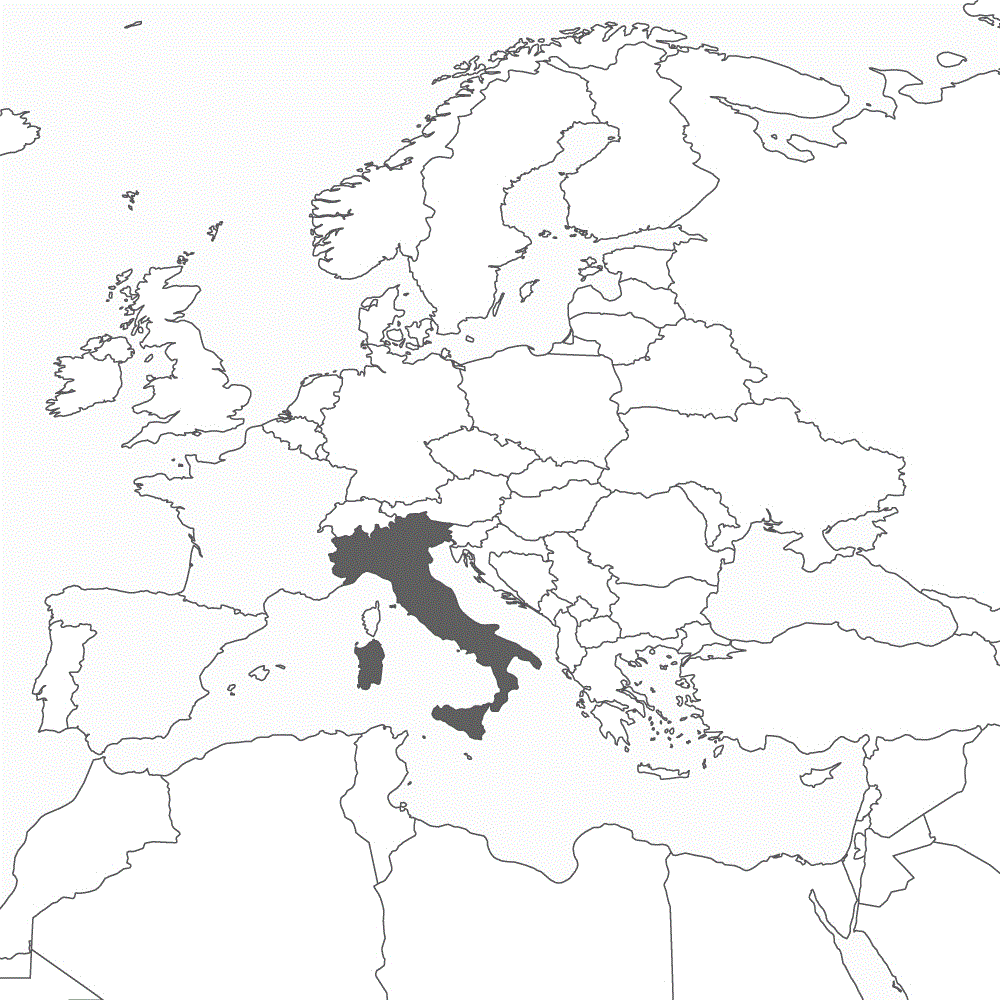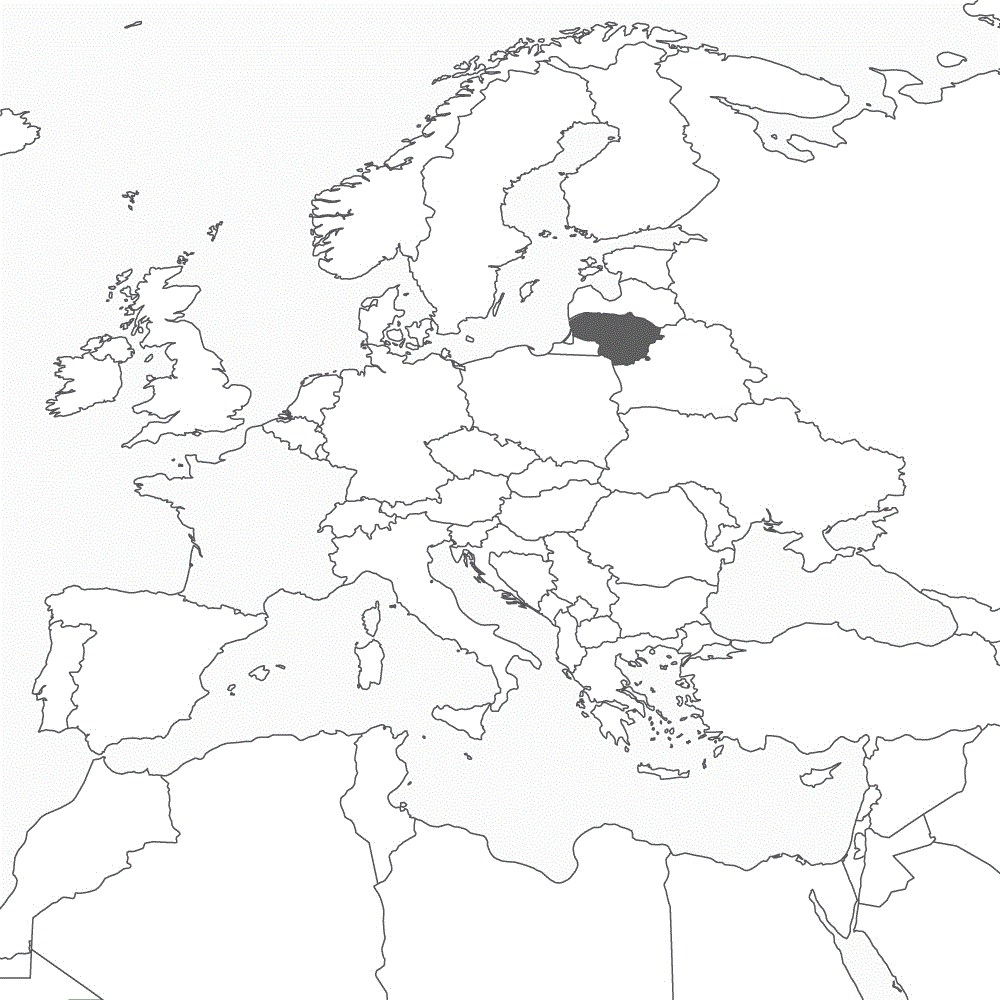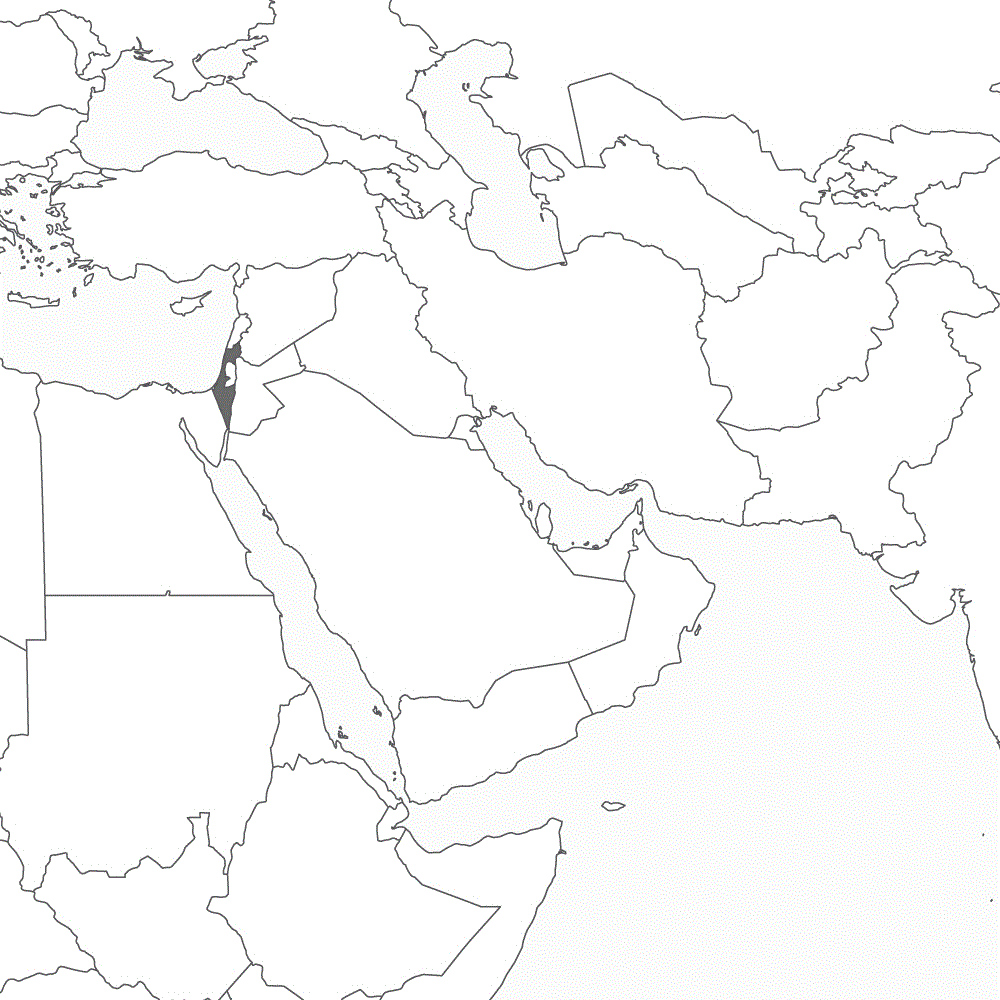Ignoring the law, repelling refugees
Highest EU court declares agreements with Morocco unlawful and urges recognition of Western Sahara. Berlin and Brussels won’t comply: it’s about migrant push-back.
LAAYOUNE/RABAT/BRUSSELS (own report) - Several agreements made with Morocco by the EU are in breach of international law, not least because they amount to support for Rabat’s rule over Western Sahara, known as the last colony on the African continent. At the beginning of October, the European Court of Justice (ECJ), the EU's highest court, confirmed the breach in a judgement that declares the EU’s trade and fisheries agreements with Morocco unlawful. The problem is that agreements have been concluded with Morocco but also concern Western Sahara, a territory illegally occupied by Morocco, as the ECJ reiterates. The court establishes that the EU must conclude any agreements relating to Western Sahara with the legitimate representative body of the Sahrawi population, which is the Frente Polisario. The ECJ judgement follows rulings by the United Nations, which currently ascribes colonial status to Western Sahara. Brussels and Berlin simply say they have “taken note” of the legal position, while not taking any steps to comply with it. European Commission President Ursula von der Leyen doubles down, announcing the EU’s desire to take the “profound friendship” with Morocco “to the next level”. So policymakers prioritise initiatives to block the flow of refugees and exploit renewable energy sources above compliance. Read more
Hydrogen for Germany (I)
Berlin looks to an import strategy to supply Germany with green hydrogen. Experts see the Middle East and North Africa as the key production region. A potential supplier: Qatar, whose Emir visited Berlin last week.
BERLIN/BRUSSELS/DOHA (own report) - The Emirate of Qatar is considering a deal to supply Germany with green hydrogen, say sources in Doha on the occasion of the Emir of Qatar's visit to Berlin last Tuesday. Qatar’s importance as an exporter of liquefied natural gas to Germany is something the general public is well aware of. Lesser known are the plans the Emirate has for launching the production of green hydrogen, which it is looking to sell to Germany. The German government’s long-term hydrogen strategy, which was updated in 2023, foresees 50 to 70 per cent of the country’s hydrogen requirements being met through imports. The total capacity of electrolysers to be installed by 2030 will amount to 10 GW (gigawatt). This quantity will not even begin to cover the predicted demand. The German initiative Dii Desert Energy is exploring options for importing green hydrogen on a large scale. It has identified the Middle East and North Africa (‘MENA region’) as the key region for producing and sourcing green hydrogen. One of the potential suppliers is Qatar. Read more
Building for the Bundeswehr
Berlin prepares to invest tens of billions in Germany’s military infrastructure. Plans flow from an orientation – pursued since 2014 – on a possible war against Russia.
BERLIN (own report) - On the initiative of the German Defence Ministry, the federal government and the Länder governments are working together in a joint effort to accelerate the realisation of military construction projects. It is part of a wider commitment to massively strengthen the German armed forces. More than 60 billion euros are to flow into the maintenance, upgrading and expansion of Bundeswehr properties and facilities across Germany over the next few years. Plans include the building of new accommodation for rising troop numbers, needed not least to implement the planned reintroduction of compulsory military service. The acquisition of new weapon systems also requires new specialised buildings for their storage and maintenance. The state of Bavaria has taken a lead here, having already passed into law various planning exemptions to facilitate military construction projects for Bundeswehr expansion. The state’s government in Munich has also removed the so-called “civil clauses”, under which universities were able to refuse to engage in research for military purposes. The expansion of military infrastructure is part of the Bundeswehr's reorientation on a potential war against Russia. This is not new: Berlin initiated such moves back in 2014. Read more
‘Will of the people’ above the law
Outsourcing fast-track asylum procedures to Albania declared illegal by Rome court – initial setback for Meloni and von der Leyen. Calls at EU summit for Refugee Convention to be scrapped. Laws violated to repel migrants.
ROME/BRUSSELS (own report) - The European Commission's current plans to relocate asylum procedures to third countries suffered a serious setback at the end of last week. A court in Rome declared the transfer of several refugees to camps in Albania unlawful. The plan is to screen refugees in a third country and deport failed asylum-seekers from Albania directly to their countries of origin in a fast-track procedure. Such a practice would be incompatible with case law established by the European Court of Justice (ECJ), the Italian court has ruled. EU Commission President Ursula von der Leyen had previously indicated that she was considering the ‘Albania model’ for application throughout the EU. Von der Leyen is also looking into the establishment of ‘return hubs’ in third countries from which rejected asylum seekers could be deported. The Netherlands is already in talks with Uganda on this option. Denmark's Prime Minister declared at the EU summit on Thursday that the ‘rules’ no longer work ‘in today's world’, referring to the 1951 Geneva Refugee Convention. Italy's government wants to override the judiciary's decision to reject the ‘Albania model’. Read more
The priorities of the West
Zelensky’s European trip to replace cancelled Ramstein summit a failure – also in Berlin. More discontent in Ukraine. Even online newspaper Politico now criticises “unquestioning” Western media.
BERLIN/KIEV (own report) – Ukrainian President Volodymyr Zelensky returned from his trip around Western Europe, including Berlin, at the weekend without the hoped for PR success and without any real new pledges of support. Zelensky had already been duped by the American cancellation at short notice of the planned Ramstein summit. That was to be his major opportunity to promote his so-called “victory plan”. On his visits to London, Paris, Rome and Berlin Zelensky largely heard Western leaders only repeating long-standing promises. Ukraine not only finds itself increasingly on the defensive militarily, losing more and more territory; Zelensky’s government is also coming under growing pressure at home. There has been a significant rise in army desertion numbers. A sharp tax hike, which Ukrainian politicians admit is likely to be highly unpopular, has become unavoidable to help finance the war. “We will be hated,” is the prediction from President Zelensky’s party. Meanwhile, the Springer-owned online portal Politico advises in an opinion piece that a discussion of alternatives to war is long overdue. The media must face the question of the excessive burden of funding Ukraine’s war economy. Have the media, fallen into an “information trap”, “blinding us, leading us to overlook the scepticism needed when considering whether this war is winnable.” Read more
Come a long way
As Berlin and Vilnius finalise an agreement on permanently stationing a German brigade in Lithuania, Germany underpins its claim to be the leading military power in the Baltic.
BERLIN/VILNIUS (own report) – The Lithuanian parliament, the Seimas, ratified an agreement last Thursday between Berlin and Vilnius on the permanent stationing of several thousand German soldiers in Lithuania. The defence ministers of both countries agreed the arrangements back in mid-September, thus preparing the legal framework for the Bundeswehr’s so-called Lithuania Brigade. The further growth and strengthening of this force essentially depends on two factors: the progress of German recruitment and the completion of the necessary infrastructure in Lithuania, which will include a 170-hectare military training area in Rūdninkai. The Ministry of Defence in Vilnius is reporting a comprehensive set of targets for the country’s militarisation. It is looking to establish a new armoured division of the Lithuanian armed forces, to boost military spending still further, to accelerate the arms build-up, and to realise its “concept of total defence”. The plans will enable German defence companies to expand their activities in Lithuania. The stationing of a Lithuanian Brigade is seen as a major success for Germany in terms of power politics. Berlin is consolidating its position and pushing ahead with its ambition to play a leading military role in the Baltic region. Read more
German dilemmas
Berlin refuses to criticise Israeli war conduct – despite fierce protests from the UN. The death toll of women and children in Gaza far exceeds any other war in the last 18 years.
TEL AVIV/BEIRUT/BERLIN (own report) – The German government is still refusing to criticise Israel’s conduct of the war in Gaza, and now in Lebanon. Berlin will not even call for a halt to the supply of deadly weapons to Israel. In recent days, several senior United Nations officials have taken a clear and strong stance against purported war crimes committed by the Israeli Defence Force. French President Emmanuel Macron has called for a halt to the supply of weapons of war to Israel. In a speech delivered yesterday, Sunday, German Chancellor Olaf Scholz limited himself to a generalised plea for “a ceasefire”. The Hamas massacre of 7 October 2023, in which almost 1,200 people were directly murdered, is now being widely commemorated. Israel answered the massacre with a war on Gaza that has long since transgressed all humanitarian limits. The number of civilians killed in the Gaza Strip after one year of war is twice as high as the number of civilians killed in Ukraine after thirty months of war. More than 80 per cent of all schools in Gaza and almost all hospitals have been severely damaged or completely destroyed by bombing. For Germany, Israel remains its most important military partner outside of NATO. Read more
‘In Germany’s national interest’ (III)
Baerbock calls for German participation in a ‘protection force’ for Gaza. Bundeswehr praises ‘incredibly close’ German-Israeli military cooperation. IDF has helped turn the Bundeswehr into an intervention army.
BERLIN/TEL AVIV (own report) – German Foreign Minister Annalena Baerbock does not rule out the deployment of Bundeswehr soldiers as part of an international ‘protection force’ for the Gaza Strip. This move would see Germany engaging in a military intervention designed to oversee a ceasefire. Other politicians in the ruling ‘traffic light’ coalition generally agree but reject – at least for the time being – Bundeswehr involvement in combat operations. If the mission did materialise it would build on what is now a long tradition of German-Israeli military cooperation. This began at the end of the 1950s, when Israeli soldiers were trained on German weapons in the wake of the Suez Crisis. Military cooperation grew closer during the 1980s and became particularly strong in the 1990s. The idea was to leverage the extensive operational experience of the Israeli Defence Force for the desired transformation of the Bundeswehr into an effective global intervention force. German soldiers have undergone specialist training in Israel in areas such as ‘house-to-house combat and tunnel warfare’. The Bundeswehr itself describes cooperation with the IDF as “incredibly close”. Read more
GERMAN-FOREIGN-POLICY.com
Information on German Foreign Policy: News + Interviews + Analyses + Background






